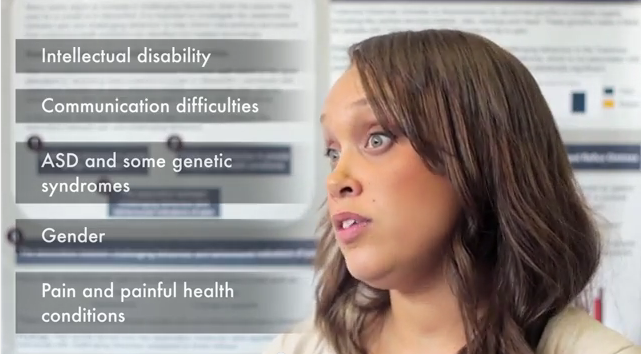Who is most at risk of displaying challenging behaviour?
Research has shown that certain people are more at risk of showing behaviours that challenge than others. For example, we know that individuals who have communication difficulties, mobility difficulties, an Autism Spectrum Condition and a greater degree of intellectual disability are more likely to show these behaviours.
We know that many individuals with these characteristics are more likely to engage in behaviours that challenge because it is difficult for the individual to communicate their needs and wishes in other ways. For example, if a person does not have a reliable way to ask for a break they may have learnt that engaging in behaviours that challenge ends an activity when it becomes too much for them. This may not be an explicit form of learning (for example, the person thinks, 'if I do A then B will happen') but may be because these two events ‘behaviours that challenge’ and ‘breaks’ have occurred together in the past and have been linked together. There are a number different things behaviours can be communicating, and we will explain more about these in the following sections of the website.
Research has shown that some other factors may be associated with behaviours that challenge, for example:
- impulsivity
- over-activity
- higher levels of repetitive behaviour.
This research is still in its early stages but points towards the possibility that some children and adults find it difficult to put ‘the brakes on’ particular behaviours, or regulate their behaviour. It is vitally important that when thinking about behaviours that challenge professionals working with families and support workers acknowledge the possibility of these additional difficulties so that everyone trying to understand or intervene with behaviours are as patient and consistent as possible with the person with the intellectual disability.
NEXT: Causes of challenging behaviour




